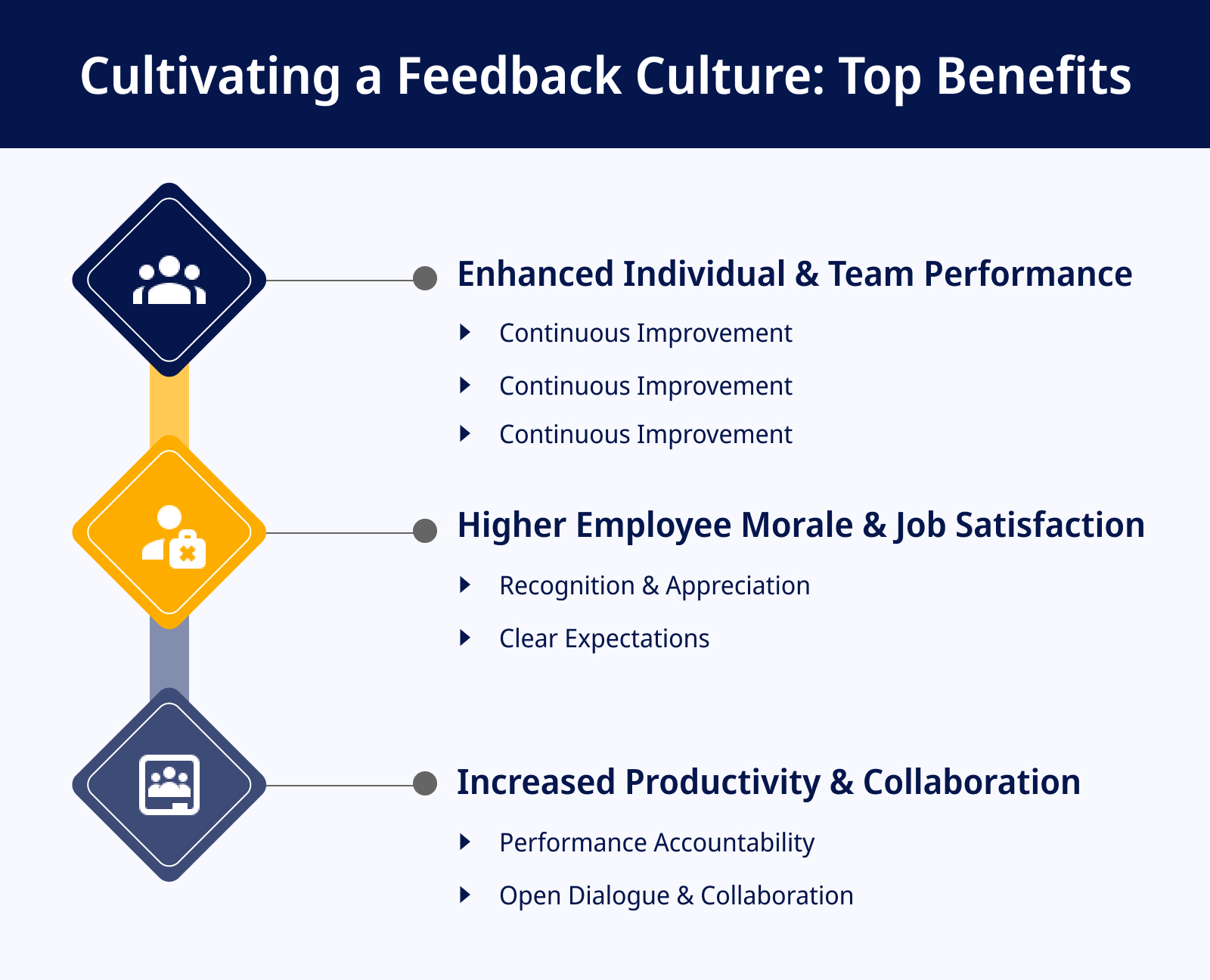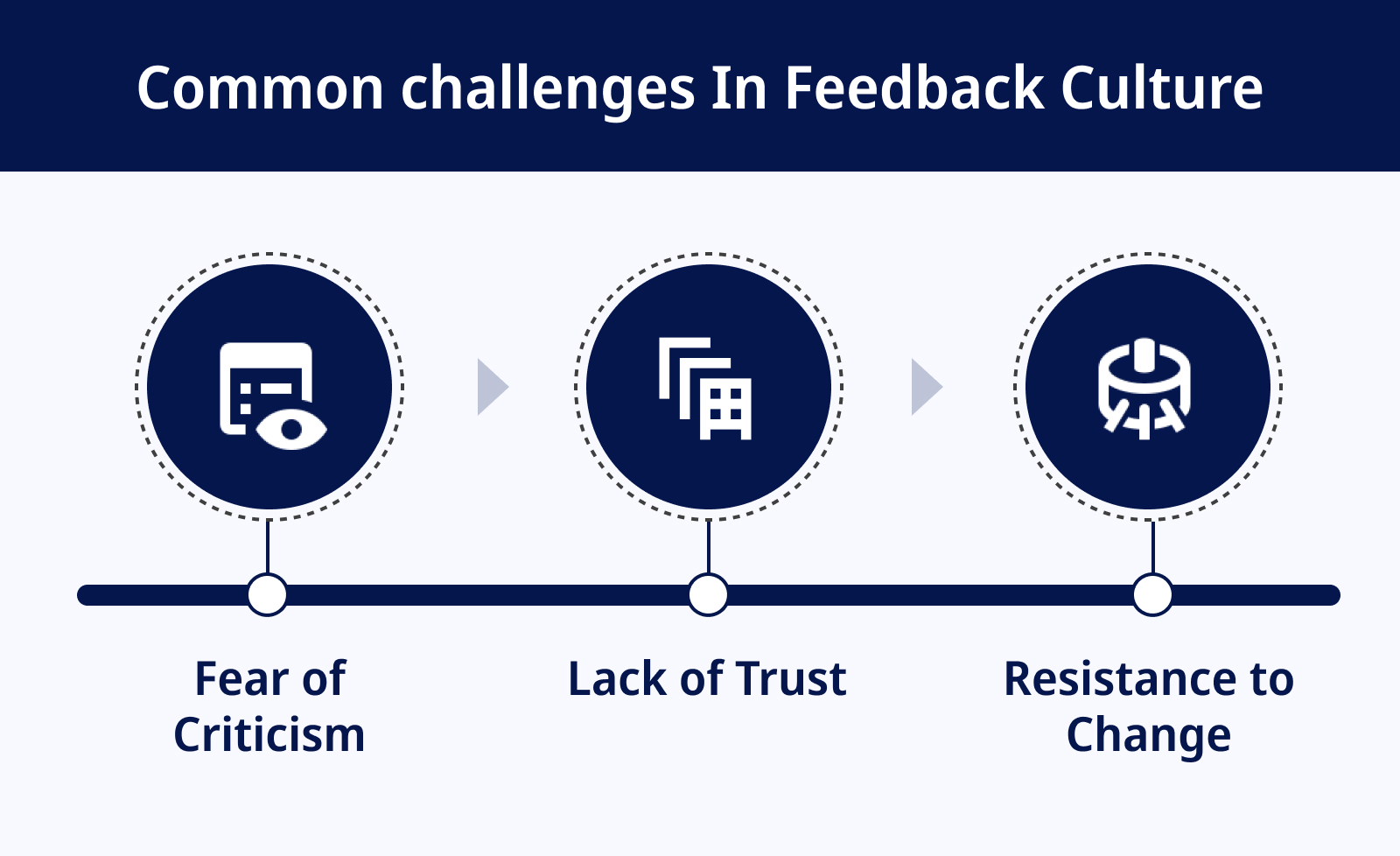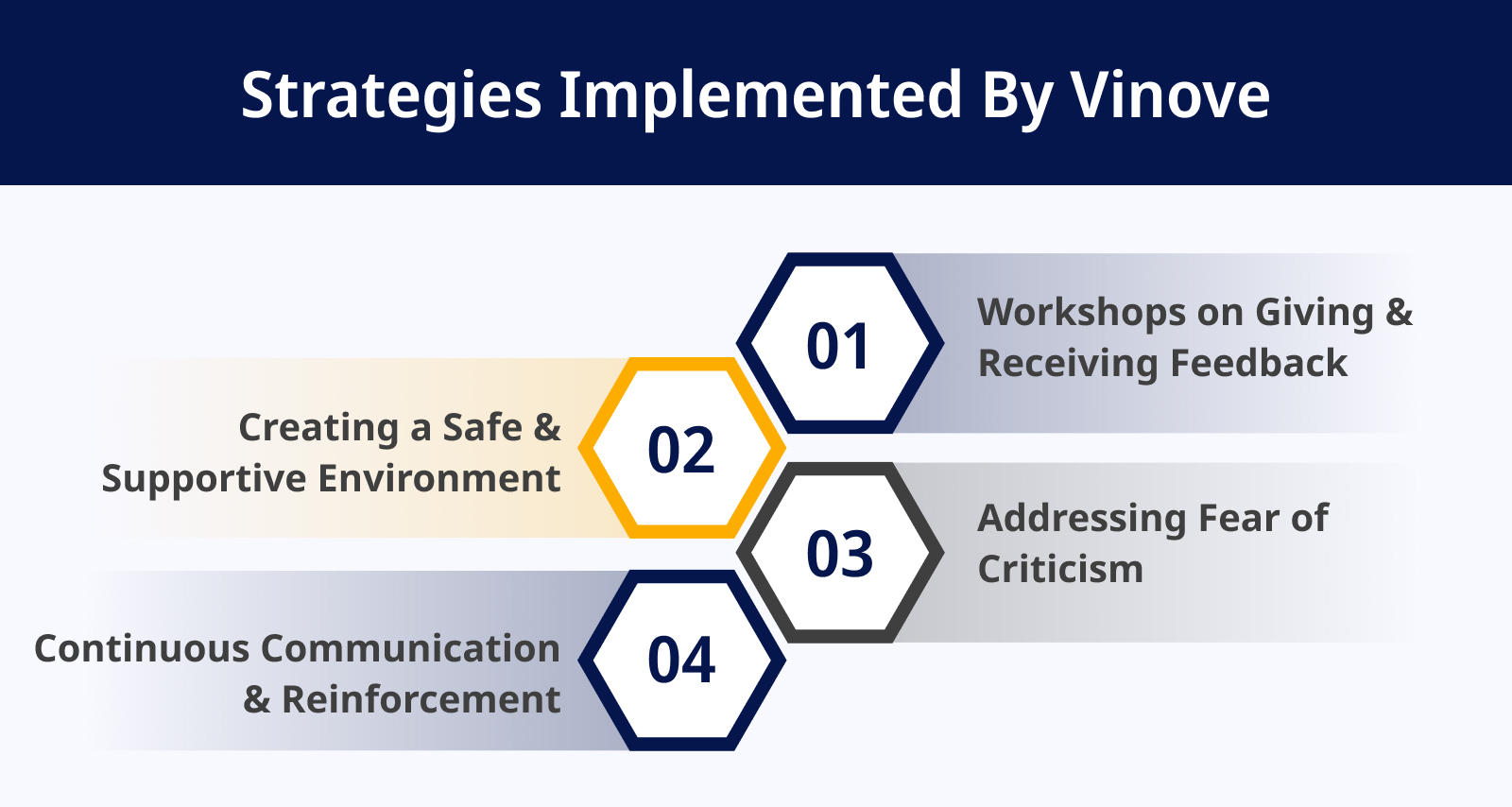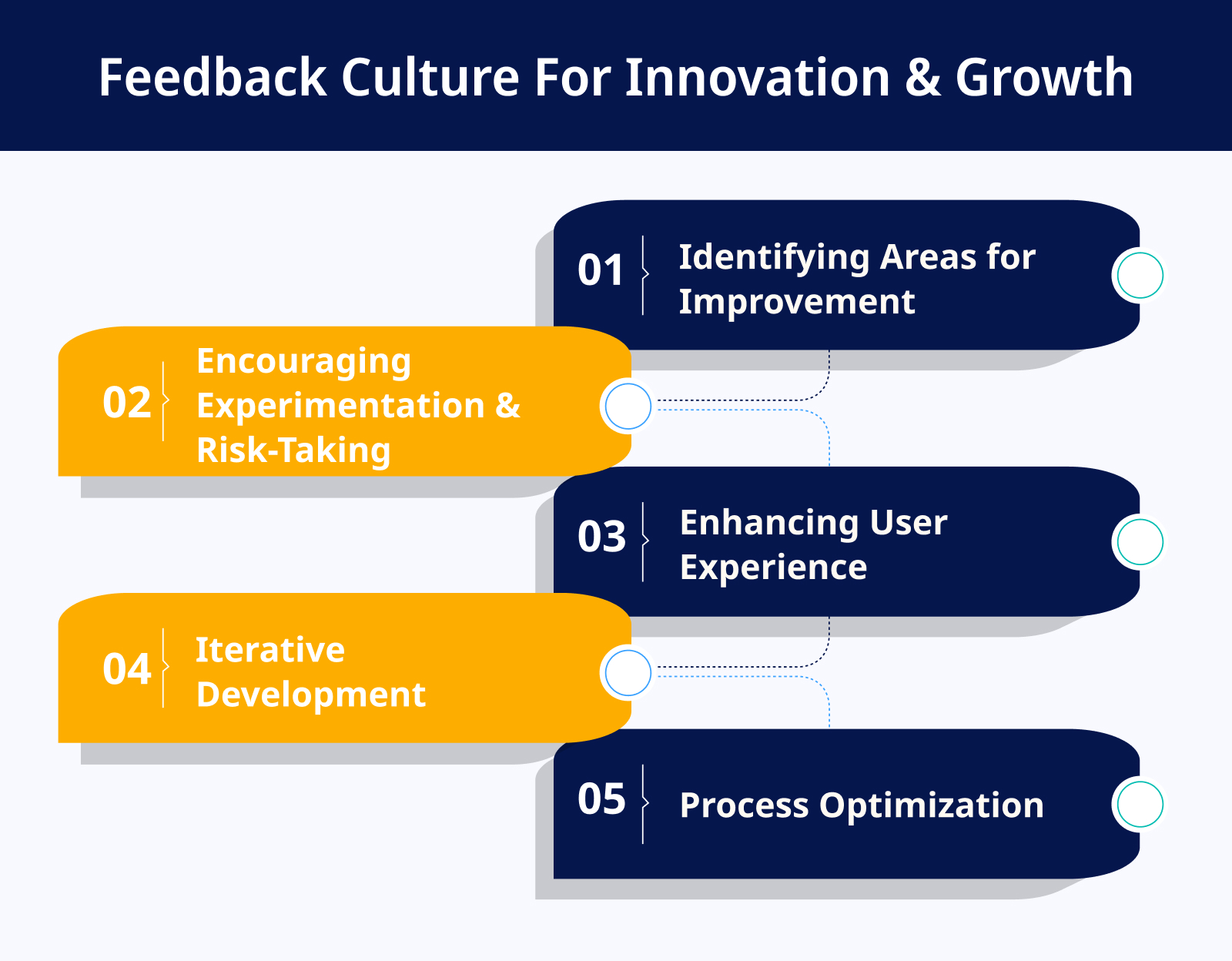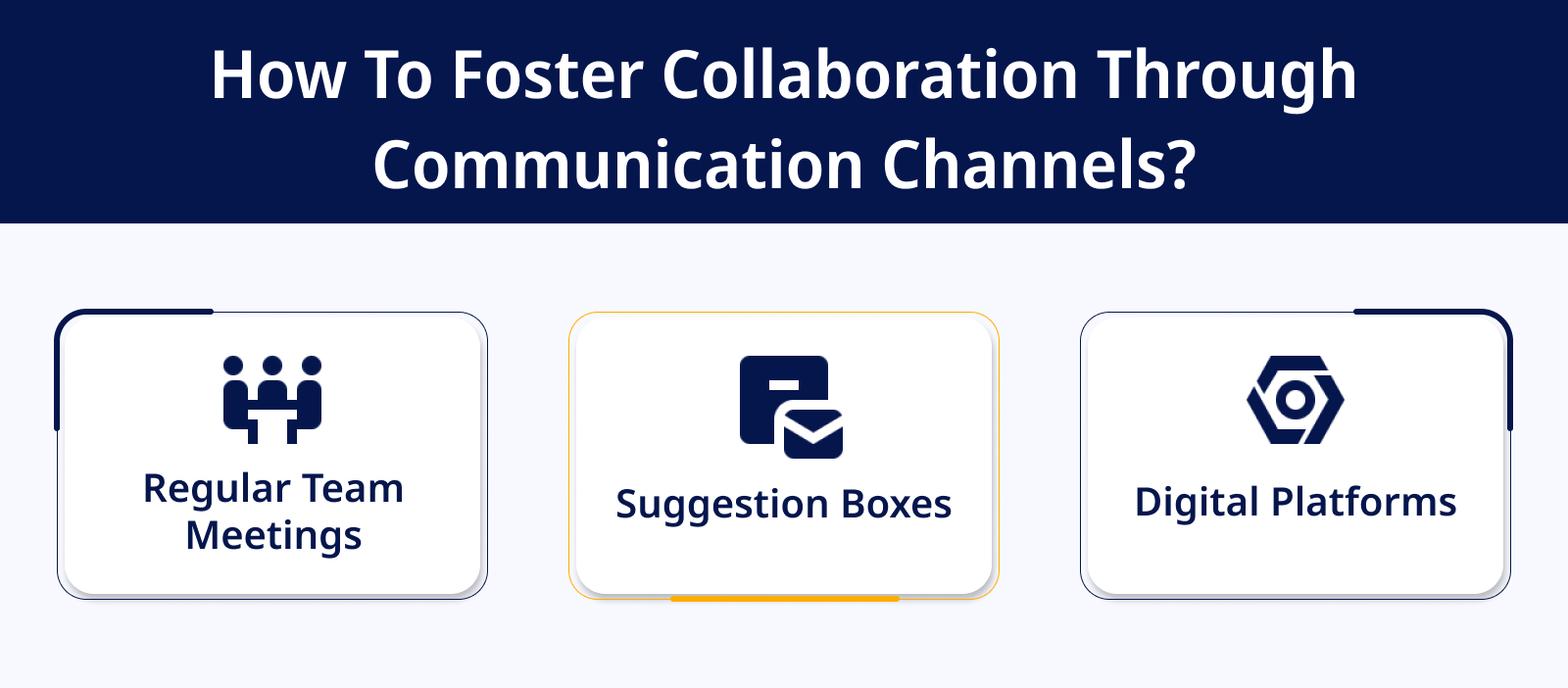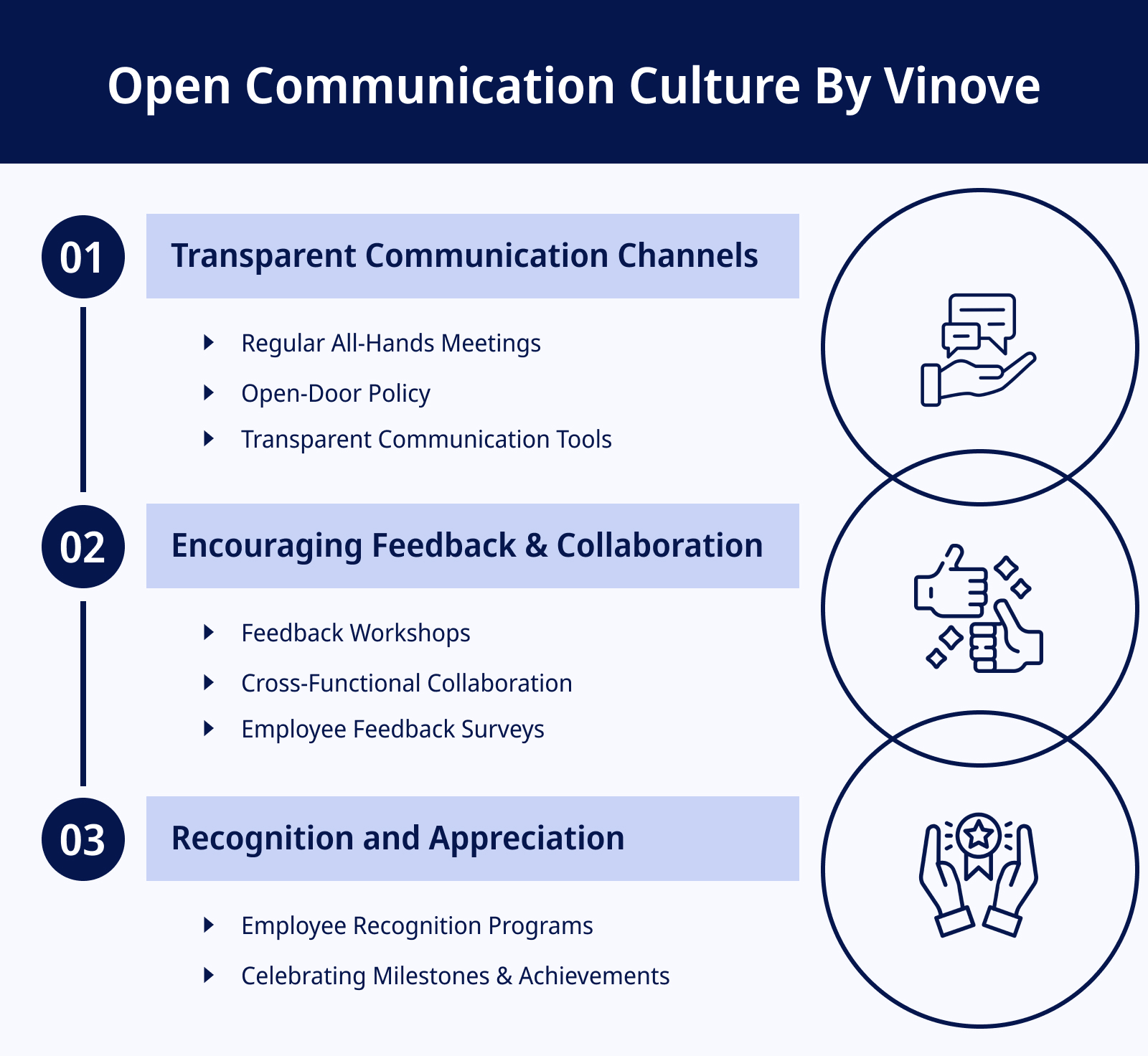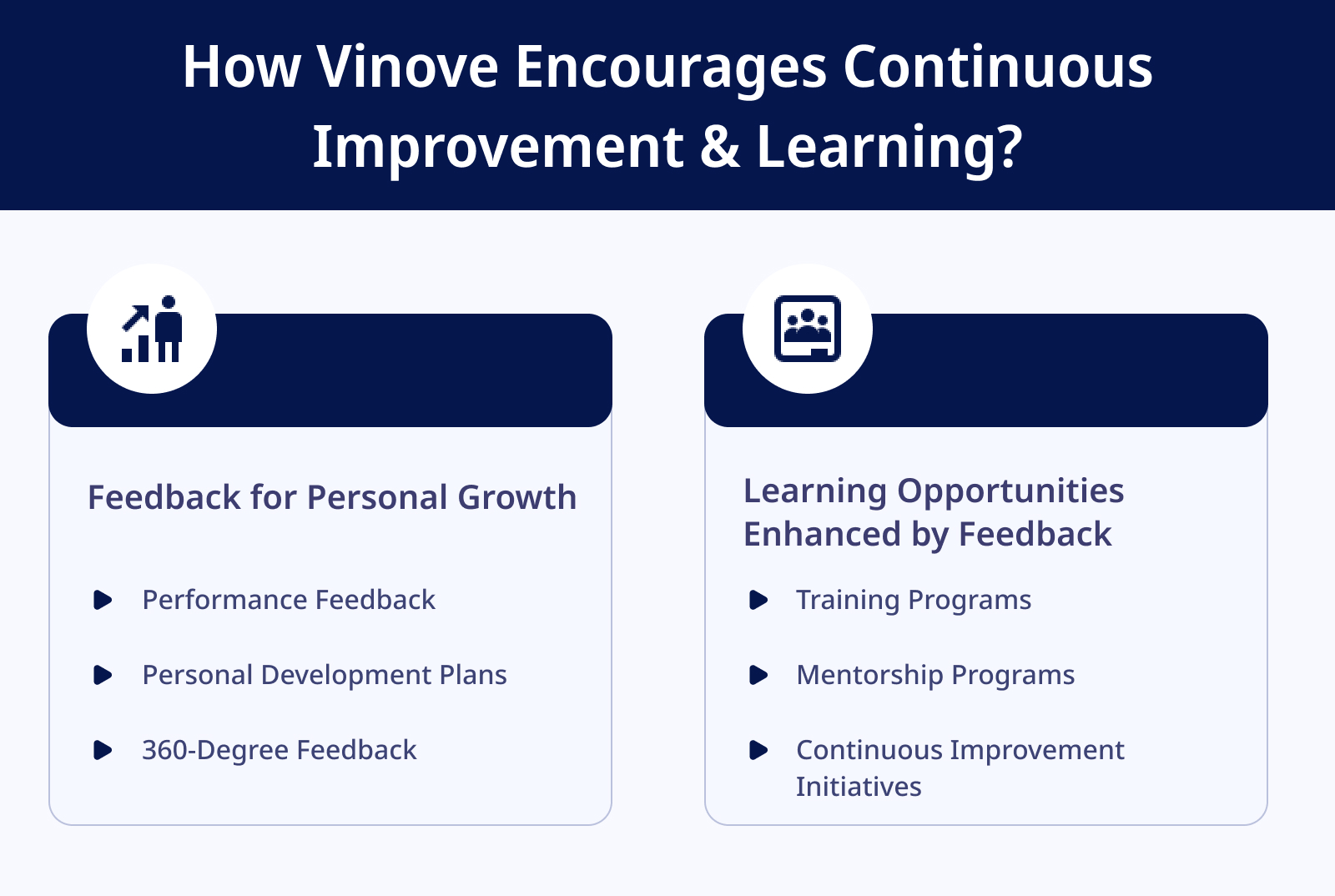A strong feedback culture not only fosters a sense of trust & transparency among team members but also empowers individuals to grow professionally.
Effective communication & open feedback are the lifeblood of any thriving organization in today’s digital landscape. Many companies understand that open communication plays a significant role in driving success.
This blog post will let you explore the importance of the employee feedback system and how you can harness it to foster a culture of open communication. This will ultimately propel your organizational success to new heights.
Understanding the Value of Open Communication & Feedback
Open communication & feedback are indispensable for creating a healthy work environment that promotes employee engagement, growth, and collaboration.
Open communication is an organization’s free flow of information, ideas, and opinions. It involves:
- Offering an environment where employees feel comfortable expressing their thoughts, concerns & suggestions
- Fostering transparency, trust & collaboration
- Leading to improved problem-solving, innovation, & overall productivity
- Helps in building strong relationships among team members
- Enhancing morale & reducing conflicts
Feedback is a critical component of open communication. Here’s why:
Employee Engagement Regular feedback helps employees understand their strengths & areas for improvement.
Employee Growth Feedback catalyzes employee growth as it helps identify areas where employees can enhance their skills, knowledge, and performance.
Collaboration Feedback promotes collaboration by encouraging open dialogue & exchange of ideas and further helps in resolving conflicts & improving teamwork.
At Vinove, we recognize the importance of employee feedback & actively encourage open communication at all levels. We foster a culture that empowers employees to thrive, innovate, and provide innovative ways to get employee feedback.
The Benefits of Cultivating a Feedback Culture
Cultivating a feedback culture brings numerous benefits to both individuals & teams.
Let’s find out how:
Enhanced Individual & Team Performance
- Continuous Improvement: When employees receive regular feedback, they gain valuable insights into their strengths & areas for improvement.
- Skill Development: Constructive feedback provides employees with guidance on how to enhance their skills and capabilities
- Goal Alignment: Feedback helps align individual goals with organizational objectives.
Higher Employee Morale & Job Satisfaction
- Recognition & Appreciation: Regular feedback allows managers and peers to recognize & appreciate employees’ contributions.
- Clear Expectations: When individuals receive feedback that outlines performance expectations, they better understand what is required of them.
Increased Productivity & Collaboration
- Performance Accountability: When employees receive feedback on their work, they become more concerned about their responsibilities & the impact of their actions
- Open Dialogue & Collaboration: When individuals feel comfortable giving & receiving feedback, they are more likely to engage in constructive discussions, share ideas, and collaborate effectively.
At Vinove, employee feedback culture is the key to unlocking our employees’ full potential and driving our collective success.
Overcoming Challenges: Encouraging Honest & Constructive Feedback
Implementing an open feedback culture can transform organizations.
However, it has its challenges. Some common challenges organizations face:
- Fear of Criticism: Many employees fear criticism and worry about the potential negative consequences of receiving feedback. This fear can hinder their willingness to provide honest and constructive feedback to their peers and superiors.
- Lack of Trust: Building trust is crucial for an open feedback culture. Employees who do not trust that their feedback will be received and acted upon fairly and respectfully may hesitate to share their thoughts openly.
- Resistance to Change: Introducing the importance of employee feedback culture requires a shift in mindset and behavior. Some employees may resist this change, preferring the status quo or feeling uncomfortable with giving and receiving feedback.
Strategies Employed by Vinove to Overcome Challenges
Vinove has implemented several strategies to overcome the challenges of fostering an open feedback culture.
Here are a few examples:
Workshops on Giving & Receiving Feedback
We conduct workshops to educate our employees on the importance of giving & receiving feedback. These workshops provide practical tips, techniques, and best practices for delivering feedback effectively and constructively.
Creating a Safe & Supportive Environment
We emphasize the importance of creating a safe & supportive environment where employees feel comfortable sharing their thoughts/ideas. This is achieved by fostering a culture of respect, empathy, and active listening.
Addressing Fear of Criticism
We acknowledge the fear of criticism & actively work to address it. We emphasize that the importance of the employee feedback system is not meant to be personal or judgmental but rather a tool for growth and improvement.
Continuous Communication & Reinforcement
We maintain regular communication channels to reinforce the importance of feedback and its positive impact. This includes regular team meetings, newsletters, and one-on-one discussions.
By overcoming the above challenges, Vinove has fostered a culture of open communication, enabling employees to provide honest and constructive feedback that drives individual and organizational growth.
How Feedback Drives Innovation & Growth?
Feedback is a powerful tool that, when integrated into a company’s processes, can fuel innovation & drive continuous improvement.
Here is how:
- Identifying Areas for Improvement: Feedback provides valuable insights by actively seeking feedback from customers, employees, and stakeholders.
- Encouraging Experimentation & Risk-Taking: This fosters a culture of innovation where individuals are motivated to think outside the box, challenge the status quo, and bring fresh ideas to the table.
- Enhancing User Experience: Feedback enables companies to develop products/services and increase customer satisfaction.
- Iterative Development: The iterative feedback loop ensures that organizations constantly learn, adapt, and evolve to meet changing market demands and customer expectations.
- Process Optimization: Feedback helps identify bottlenecks, inefficiencies, and areas for process optimization.
At Vinove, feedback has led to meaningful changes across various aspects of our organization.
Let’s have a look at a few examples:
Product Development: After listening to our client’s feedback, we have been able to introduce new features, enhance usability, and deliver a more robust and user-friendly product.
Service Delivery: Client feedback has helped us refine our service delivery processes.
Internal Processes: By encouraging open communication, we have been able to identify inefficiencies and implement automation where possible.
Fostering Collaboration through Communication Channels
Fostering collaboration through effective communication channels is crucial as it creates a culture of open communication & feedback.
Regular team meetings, suggestion boxes, and digital platforms serve as inclusive & accessible channels for employees to provide feedback.
By embracing the above channels, one can ensure that every employee has a voice. This collaborative approach strengthens teamwork, encourages diverse perspectives, and drives the organization’s growth and success.
Regular Team Meetings
- Provide a structured platform for employees to share their thoughts, ideas & concerns
- Create a safe & inclusive environment
- Allow individuals to express their opinions openly & engage in meaningful discussions
Suggestion Boxes
- A physical communication channel for the importance of employee feedback
- Allow employees to submit their suggestions, ideas & concerns anonymously
- Provides a sense of security for those who feel hesitant to share their feedback openly
- Ensures that feedback can come from all levels of the organization
Digital Platforms
- Includes internal communication tools, such as instant messaging apps, project management software & dedicated feedback portals
- Provide a convenient & accessible way for employees to share their feedback, ideas & suggestions.
- Enable real-time communication and allow for immediate responses & discussions, regardless of physical location or time zone.
At Vinove, we strongly emphasize inclusivity & accessibility regarding the importance of employee feedback channels. We recognize that feedback can come from anyone, regardless of their position or role within the company.
Therefore, Vinove ensures that every employee has an opportunity to contribute their feedback, ideas, and suggestions. We provide growth ideas for employee feedback.
The Vinove Approach: Building an Open Communication Culture
At Vinove, we believe that open communication is the foundation of a healthy & thriving work environment.
We create an environment where employees feel valued, heard, and empowered. This open communication culture fosters innovation, growth, and a sense of belonging within the organization.
Transparent Communication Channels
We ensure that information flows freely across the organization. Here are some examples of initiatives & practices that promote transparency:
Regular All-Hands Meetings: In these meetings, employees from all levels of the organization come together to discuss company updates, share achievements, and address any concerns.
Open-Door Policy: This policy creates a supportive environment where individuals feel comfortable seeking guidance and sharing their thoughts.
Transparent Communication Tools: We utilize digital tools like project management software and instant messaging platforms to facilitate transparent and efficient communication.
Encouraging Feedback & Collaboration
Vinove recognizes the importance of feedback and collaboration in driving growth and innovation. Some initiatives and practices promote feedback and collaboration:
Feedback Workshops: These workshops equip employees with the necessary skills and techniques to provide constructive feedback and engage in meaningful conversations.
Cross-Functional Collaboration: This collaboration enhances teamwork and promotes exchanging ideas, diverse perspectives, and innovative solutions.
Employee Feedback Surveys: These surveys allow employees to express their thoughts, suggestions, and concerns anonymously.
Recognition and Appreciation
Vinove values the contributions of its employees and believes in recognizing and appreciating their efforts. Some initiatives and practices promote recognition and appreciation:
Employee Recognition Programs: These programs boost employee morale and create a culture of appreciation and recognition. We encourage peer-to-peer recognition, where employees can appreciate and acknowledge their colleagues’ efforts.
Celebrating Milestones & Achievements: These celebrations create a positive and motivating work environment, reinforcing the value of each employee’s contributions.
Encouraging Continuous Improvement & Learning At Vinove
At Vinove, our feedback culture extends beyond individual projects, encompassing a commitment to continuous improvement and learning.
By embracing the importance of employee feedback as a valuable tool, we have created an environment where ideas flourish, collaboration thrives, and individuals feel empowered to contribute their best.
Feedback for Personal Growth
Vinove recognizes that feedback is a valuable tool for personal growth & development.
Here is how our feedback culture supports individual growth:
Performance Feedback: We provide regular performance feedback to employees and offer insights into their strengths, areas for improvement, and growth opportunities.
Personal Development Plans: Vinove encourages employees to create personal development plans that outline their goals, aspirations, and areas of improvement.
360-Degree Feedback: Vinove utilizes 360-degree feedback, where employees receive feedback from multiple sources, including managers, peers, and subordinates.
Learning Opportunities Enhanced by Feedback
Vinove believes in providing learning opportunities that are enhanced by the importance of employee feedback.
Here are some initiatives and programs that promote learning and growth:
Training Programs: These programs are often tailored based on the importance of employee feedback, identifying areas where additional training and development are needed.
Mentorship Programs: Vinove has a robust mentorship program that pairs experienced employees with those seeking guidance and support. This feedback-driven mentorship program creates a supportive learning environment & facilitates the transfer of knowledge and skills.
Continuous Improvement Initiatives: Vinove encourages employees to participate in continuous improvement initiatives, where they can provide feedback and suggestions for enhancing processes, workflows, and organizational practices.
Conclusion
So far, we have seen that fostering a culture of open communication has proven to be a powerful catalyst for a company’s growth & success.
By embracing feedback as a valuable tool for improvement, one can create an environment where every team member feels heard, valued, and empowered.
This culture of open communication enhances collaboration & innovation, strengthens relationships & boosts employee morale.
As Vinove continues to prioritize the importance of employee feedback & invest in building a feedback-driven culture, it is poised to thrive in an ever-evolving business landscape, setting an inspiring example for organizations seeking to harness the power of feedback to drive their success.


